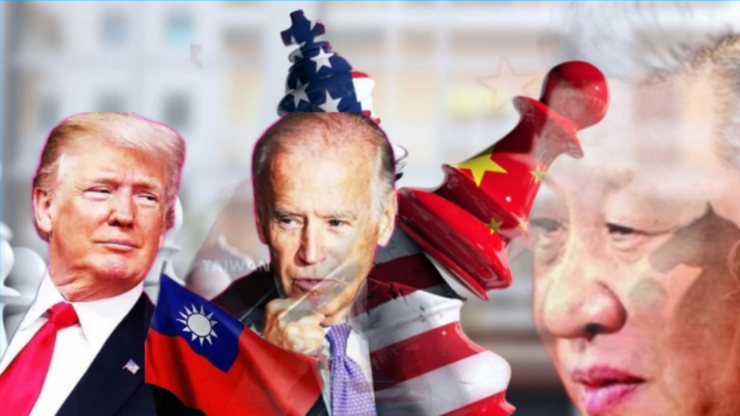
This is especially notable when combined with the rise to power in Taiwan of staunch separatist Lai Ching-te, who has taken a hardline stance on the island’s independence from the PRC.
While the world is anxiously following the intricacies of the US election race, US political scientists and international relations experts predict that any outcome of the campaign does not bode well for China, the world’s second-largest economy and the Americans’ main rival.
Anti-China sentiments are so deeply rooted and spread throughout the political establishment of the United States that regardless of the victory of Republicans or Democrats, Washington’s rivalry and tough policy towards China will inevitably continue. The enduring bipartisan consensus on the “China issue” among lawmakers in the U.S. Congress, which has introduced more than 150 anti-China bills over the past few years, is a testament to this.
Some experts, such as Rory Daniels from the Centre for China Analysis at the Asia Society Policy Institute in New York, believe that Donald Trump’s victory in the 2024 presidential election could be a “real nightmare” for China, given the Republicans’ view of China as the main enemy in the international arena. In addition, in such a scenario, the return to power of the former president’s right-hand man – Secretary of State Mike Pompeo, known for his dislike of Tianxia, is not excluded. Such a development clearly does not foreshadow a reduction in tension in US-China relations, on the contrary, it threatens the resumption of hot trade wars between Washington and Beijing.
As Stanley Rosen, professor of political science and international relations at the US-China Institute at the University of Southern California, emphasises, Trump’s “complete unreliability as an ally or an adversary” is not encouraging either. Especially since his campaign strategy is based on “fomenting political, economic and sociocultural antagonism to consolidate voters.” It also brings to mind the past experience of Trump’s first presidential cadence, when in 2016 one of the first actions of the new White House host was a call to Taiwanese President Tsai Ing-wen. For the first time, the US leader spoke directly with the island’s head, and even said that the United States could abandon the “one China” policy, which is completely unacceptable to the PRC.
The prospect of Joseph Biden’s re-election for a second term in office looks no better, and perhaps even worse, for Beijing. Unlike his Republican rival, he does not refrain from personal criticism and insulting remarks against the Chinese leadership. Recall that at a press conference in November 2023, following the talks on the margins of the Asia-Pacific Economic Cooperation summit in San Francisco, the US President once again called Xi Jinping a “dictator”. At that moment, TV cameras captured the anguished expression on the face of US Secretary of State A. Blinken, who was next to his boss. This political gesture demonstrated the depth of distrust between the parties.
As a result, experts say, there are far fewer areas of co-operation between the US and China now than there were just a few years ago, when meetings between Chinese and American leaders led to joint action. Beijing’s articulated concerns about the need to stop Washington’s arms deliveries to Taiwan, to lift unilateral US sanctions and restrictions against China, and to remove the American-created obstacles to global supply chains remain unanswered by the Biden administration.
This whole tangle of problems is exacerbated by the victory in the presidential election in Taiwan, which Beijing considers its rebellious province, of Lai Ching-te, a convinced separatist and the second face of the American-backed Democratic Progressive Party (DPP). The politician has taken an even tougher stance on the island’s independence than his predecessor, DPP leader Tsai Ing-wen.
Trump has been tough on China on many issues from trade to technology in his first term as president, but Democrats and some members of the Republican Party believe he hasn’t gone far enough on human rights issues. In turn, if Biden wins the post again, he will be an even more “unpleasant” president for Beijing, as he will continue to press China on alleged human rights violations in China. This will clearly not be good for relations between the two countries.
Fernando GAILLARDO, political observer, especially for the online magazine “New Eastern Outlook”.